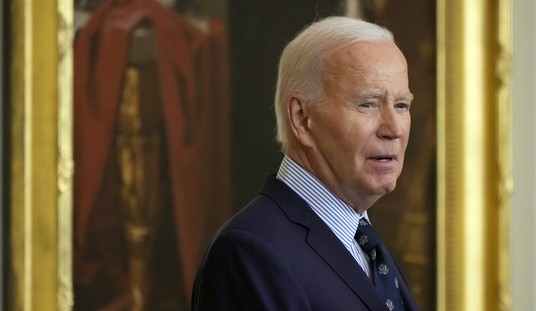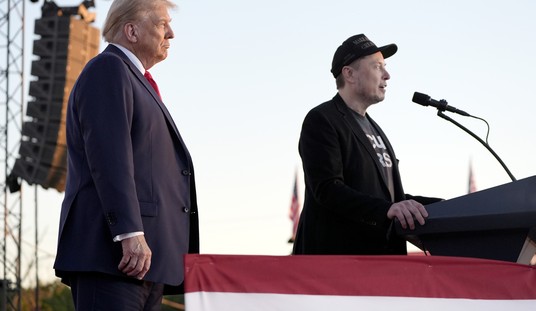
After banner headlines about advertiser boycotts media falls silent when those companies change their minds and return.
The major news outlets are always enthusiastic about detailing how corporations will rise up in supposed defiance and announce they are suspending their commercials from running during a particular Fox News program. The enthusiasm of outlets like CNN is palpable, as they think they have hit a weak spot in their rival that has dominated the news sector for years.
There are some unspoken truths to this method. First, CNN will never address the details of ad rates, because that would entail addressing the ratings plunge it has endured for years now, cratering further most recently. Secondly, there is another detail never reported by this same news outlet — the significant number of those advertisers who have returned to Fox News.
Judd Legum, one of the more enthusiastic boycott-calling leftists out there, recently expressed his dismay at one of the companies he helped strongarm into pulling commercials months ago. It turned out that Bayer had returned to running spots on the Tucker Carlson broadcast.
Following a series of xenophobic, bigoted, and misogynist comments by Tucker Carlson, @Bayer has not advertised on his show for months
The company has advertised three times on Tucker's show tonight@Bayer is hoping people have stopped paying attention
— Judd Legum (@JuddLegum) June 4, 2019
You can really taste the insult-induced bile in his mouth. How DARE a company not adhere to the directives of this newsletter-producing pundit?!?! That the machinations of commerce and the diminished influence of digital harpies is lost on Judd is evident. It is also hilarious.
For the better part of a year now we have been hearing the news reports about companies who have been pulling their advertising from various Fox News programs. There has even been a pattern to the practice we can track. A pundit says something that can be interpreted as “offensive”, then a number of left-wing outlets decry the comments with hyperbolic outrage, followed by a call for advertisers to react accordingly, and concluding with news reports of advertisers “pulling out” from supporting that individual’s program.
This cycle was just playing out last week when Laura Ingraham’s comments on her prime time show about individuals banned on social media were construed as seemingly in support of alt-right figure Paul Nehlen. On cue the basement cranks at outlets like Media Matters, and Think Progress reacted with outrage — and lists of the advertisers on Laura’s show. And of course major news nets like CNN obeyed their commands and detailed how Ingraham lost advertisers as a result.
Well, technically one advertiser — the photo processing company Fracture announced it was removing its ads from Laura’s show. This response seems to be entirely rooted in the accusatory content found in a Media Matters press release and overreacting accordingly. Says CEO of Fracture, Abhi Lokesh in closing:
We believe in freedom of speech, but we certainly don’t have to support hate speech with our advertising dollars.
The rich irony is that Lokesh is falling prey here to precisely what Ingraham was addressing. She mentioned how the efforts to deplatform individuals from social media were predicated on the fluid interpretation of the term “hate speech”. The scare tactic used on advertisers is no less suggestive. That he accuses her of hate speech for pointing out the mischaracterization of that very phrase borders on the surreal.
Given time to think the matter over there is a likelihood Mr. Lokesh will reconsider his decision. This is based on empirical data. Over the past year a growing list of advertisers who fled from Fox News programming returned to the airwaves. Along with Bayer we have seen Dollar Shave Club, Office Depot, Cars.com, and a number of others go back to running commercials on select shows they had once announced pulling out from supporting.
What Legum is confounded by here is that businesses do in fact follow market forces. After initially reacting to the loud hectoring from the Media Matters set a realization must have set in. While the attention-grabbing foot stompers seemed to be indicating a groundswell reaction in the customer base what in fact came to be realized is these outrage merchants do not hold much influence on the marketplace.
It may have appeared that fleeing Fox News was a cagey PR move, but what the businesses likely found out is that there was no commercial benefit to their decisions. In order to appease the torch-and-pitchfork cranks these companies cut off access to a fertile audience, with no commensurate financial benefit. What they may have realized is they were taking directions from someone with a stunted grasp of conducting business.
As an example, take this viewpoint from Legum, regarding the decision by Bayer.
CONTEXT: @Bayer said it was going to stop advertising on Laura Ingraham, then quietly resumed its ads
This is how they rollhttps://t.co/e5G0EgSekX
— Judd Legum (@JuddLegum) June 4, 2019
He is suggesting the company has “quietly” resumed its advertising. Wrap your head around that. It is running commercials in prime time, to the attention of millions of viewers. He suggests that Bayer is hoping that “people have stopped paying attention”, while wanting as many people as possible to see its commercials. This is deep thinking that Legum and his ilk rely upon when guiding businesses on their decisions.
Clearly more companies are coming to the realization that listening to those who think it is a sneaky maneuver to run commercial spots in front of the widest possible audience may not be in the best interest of its bottom line.














Join the conversation as a VIP Member